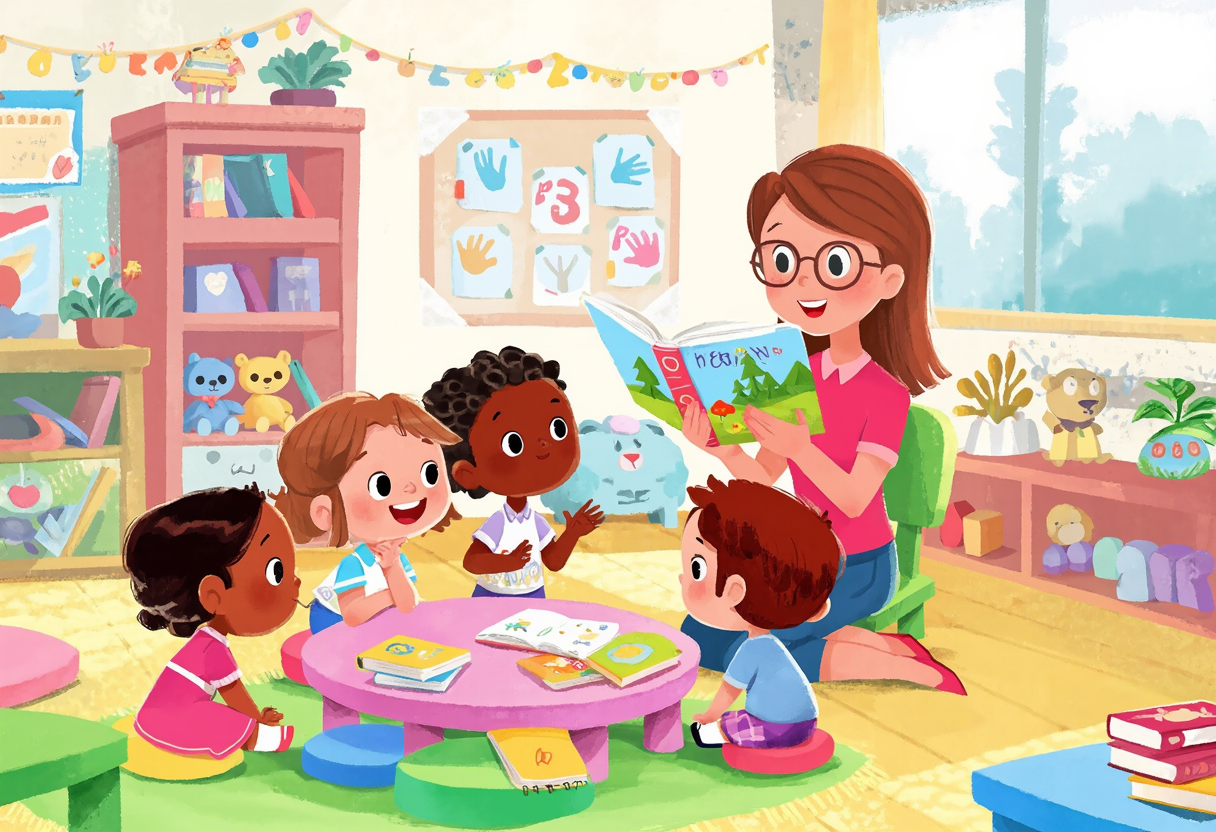Unlocking Potential: The Impact of Early Childhood Literacy Education
Early Childhood Literacy Education is essential for unlocking children's potential. This article examines its influence on cognitive skills, social development, and long-term learning outcomes. By fostering early literacy, we can create confident, capable learners who thrive in their educational journeys.
The Transformative Power of Early Childhood Literacy Education
Unlocking potential starts with Early Childhood Literacy Education, which significantly influences a child’s life trajectory. Research indicates that children who engage in literacy activities early in life develop critical reading and writing skills more effectively than their peers. These foundational skills enable children to better comprehend academic material as they advance through their educational journeys. More than just reading, Early Childhood Literacy Education emphasizes communication, helping children articulate their ideas clearly. This form of literacy serves as the cornerstone for cognitive growth, where analytical thinking and problem-solving skills are further refined. Moreover, children exposed to rich literacy environments are often more enthusiastic about learning, setting a positive tone for their future educational experiences. Therefore, the role of Early Childhood Literacy Education in shaping confident learners cannot be overstated; it truly unlocks a world of possibilities for young minds.
Effective Practices in Early Literacy Instruction
To fully harness the benefits of Early Childhood Literacy Education, educators must employ effective instructional practices. Utilizing interactive read-alouds engages children while building their listening and comprehension skills. Phonemic awareness activities, such as rhyming and sound games, enhance children's ability to decode words fluently. Incorporating diverse reading materials, including picture books and digital stories, will accommodate various learning styles and keep students interested. Moreover, fostering a literacy-rich home environment, where parents participate in shared reading and writing activities, strengthens a child’s learning experience. Collaborative learning through group discussions or literature circles can deepen understanding and encourage social interaction. Consistent practice, in different settings, reinforces literacy skills and cultivates a sustained interest in reading and writing. By continually adapting these strategies, we not only enhance Early Childhood Literacy Education but also create effective, vibrant learning experiences.
The Ripple Effects of Early Literacy on Development
The effects of Early Childhood Literacy Education ripple through multiple aspects of a child's life. Children who develop strong literacy skills often exhibit heightened self-esteem and confidence, essential traits for social interactions. This boost in self-esteem contributes to resilience when faced with challenges, influencing their ability to tackle academic pressures later in life. As their communication skills improve, they are better equipped to express their thoughts, leading to healthier relationships with peers and adults. Additionally, literacy-rich environments foster creativity as children engage in storytelling and imaginative play. This creativity further enhances cognitive flexibility, a vital skill in navigating various scenarios. Long-lasting effects of Early Childhood Literacy Education can be seen in academic performance; studies show that students who are proficient readers in early grades tend to maintain high performance throughout their school years. Hence, the importance of fostering literacy cannot be underestimated, as it lays a foundation for holistic development.
Overcoming Barriers to Literacy Education
Despite its advantages, Early Childhood Literacy Education is not equally accessible to all children. Various barriers exist, such as socioeconomic challenges, lack of resources, and inadequate teacher training. Addressing these disparities requires a concerted effort from communities and policymakers to enhance access to quality literacy programs. Community outreach initiatives, such as free literacy workshops, can play a pivotal role in raising awareness about the significance of reading and writing in early development. Furthermore, collaboration with libraries and local businesses can enrich the literacy landscape with diverse resources. Educators must also engage in professional development opportunities to hone their skills in delivering effective literacy instruction. Empowering teacher training will enable them to manage diverse classrooms while catering to the unique literacy needs of each child. By eliminating barriers, we create an equitable framework that enhances opportunities for all children to benefit from Early Childhood Literacy Education.
Pathways to Success through Literacy
The future of Early Childhood Literacy Education lies in our ability to adapt and innovate. Setting a vision for literacy education that prioritizes diverse and inclusive pedagogies can transform the landscape of early learning. Implementing programs that encourage parental involvement, such as family reading nights, enhances community engagement and promotes a shared responsibility for children's learning. Technology integration, such as educational platforms and apps, can also augment traditional literacy practices, appealing to the interests of modern children. Additionally, policy reforms that allocate resources to early literacy programs ensure that every child has the chance to succeed. Investing in Early Childhood Literacy Education is an investment in societal progress, as literacy skills lay the foundation for economic mobility and social equity. The possibilities, when we put literacy at the forefront, are limitless—unlocking potential for children and communities alike.
Conclusion: Literacy as a Lifelong Asset
In summation, Early Childhood Literacy Education stands as a lifelong asset that unlocks tremendous potential within individuals. Its profound impact on cognitive development, emotional intelligence, and social skills marks it as a priority in educational discourse. The journey towards effective literacy education is ongoing, requiring dedication and innovation from educators, families, and communities. As we bolster our efforts in Early Childhood Literacy Education, we cultivate environments where children can thrive as confident learners. The future of Early Childhood Literacy Education is bright, and through collective commitment, we can ensure that every child has the opportunity to thrive and cultivate a love for reading and writing that lasts for a lifetime.
